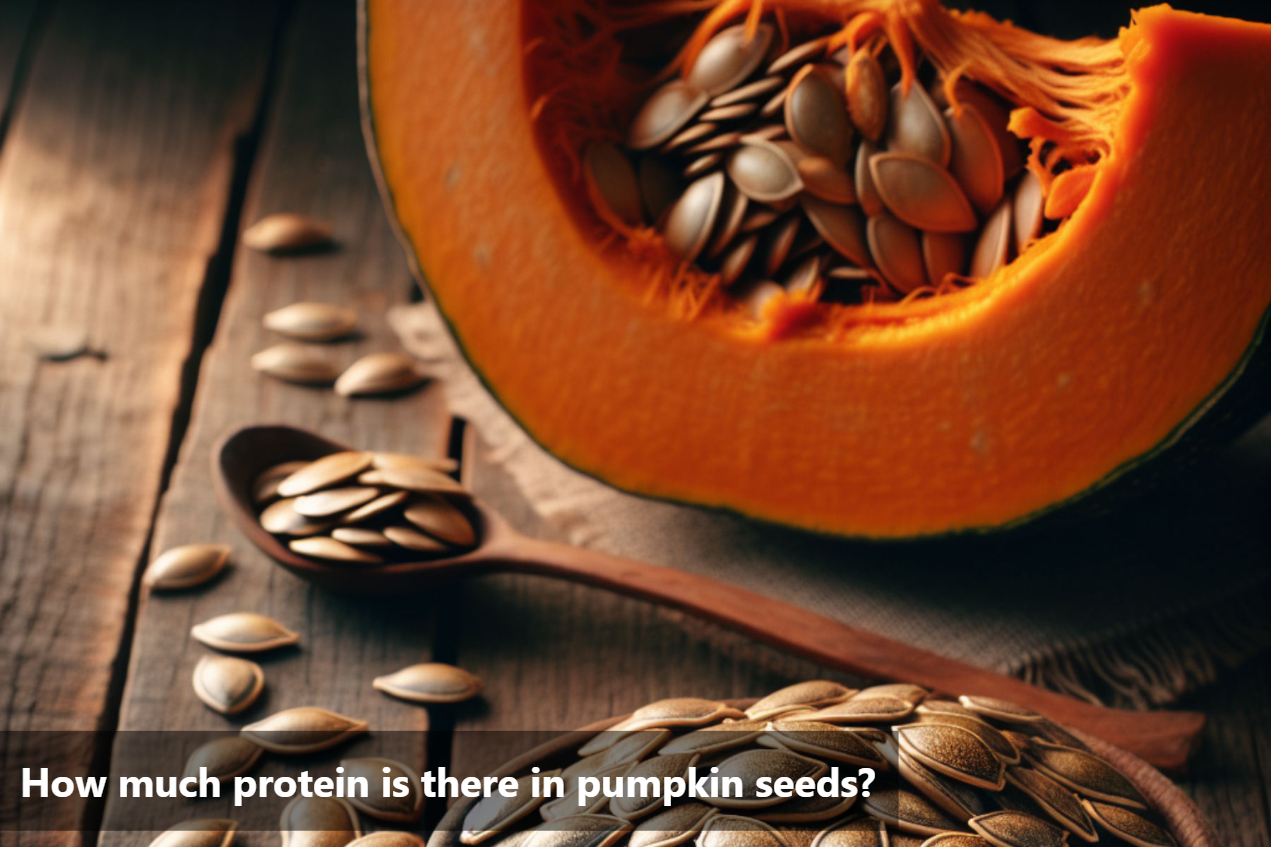
How much protein is there in pumpkin seeds?
When it comes to plant-based sources of protein, pumpkin seeds stand out as a nutritional powerhouse. These tiny seeds are packed with essential nutrients, making them an excellent addition to your diet.
Pumpkin seeds are rich in protein, containing around 7 grams of protein per ounce. This makes them a valuable plant-based protein source for individuals following vegetarian or vegan diets, as well as those looking to diversify their protein intake. In addition to protein, pumpkin seeds are also a good source of healthy fats, fiber, and essential minerals like magnesium, zinc, and iron.
Including pumpkin seeds in your diet can help boost your protein intake and support muscle repair and growth. Whether sprinkled over salads, blended into smoothies, or incorporated into baked goods, there are numerous delicious ways to enjoy the nutritional benefits of pumpkin seeds. So, if you're looking to increase your protein intake with a nutrient-dense snack, consider adding pumpkin seeds to your daily meals.

Nutritional profile of pumpkin seeds
1-oz (28-g) serving of pumpkin seeds contains:
Carbs |
3 g |
Protein |
8.6 g |
Fat |
14 g |
Fiber |
1.7 g |
Manganese |
56% of the Daily Value (DV) |
Copper |
42% of the DV |
Magnesium |
40% of the DV |
Phosphorus |
28% of the DV |
Zinc |
20% of the DV |
Iron |
14% of the DV |
How much protein is there in pumpkin seeds?
Protein content in pumpkin seeds is a crucial aspect to consider, especially for individuals looking to boost their protein intake using plant-based sources. Pumpkin seeds are esteemed for their impressive nutritional profile, which includes a notable protein content.
They are a versatile and convenient way to incorporate protein into your diet, particularly for vegetarians and vegans.
In a single 1-ounce (28-gram) serving of pumpkin seeds, you can expect to find approximately 8 grams of protein.
This amount can contribute significantly to your daily protein requirements and support muscle development and overall health.
When compared to other plant-based protein sources, such as chia seeds, almonds, or quinoa, pumpkin seeds stand out for their rich protein content.
Moreover, pumpkin seeds are a complete protein source, meaning they provide all nine essential amino acids that the body cannot produce on its own. This makes them a valuable addition to a balanced diet.
Whether enjoyed on their own as a snack, sprinkled over salads, or blended into smoothies, pumpkin seeds offer a tasty and nutritious way to increase your protein intake.
By incorporating pumpkin seeds into your meals and snacks, you can enhance the protein content of your diet while enjoying their unique flavor and numerous health benefits.
Ways to incorporate pumpkin seeds into your diet
When it comes to boosting your protein intake, adding pumpkin seeds to your diet can be a simple and nutritious choice. Here are some creative ways to incorporate these protein-packed seeds into your meals:
Morning Boost: Sprinkle a handful of pumpkin seeds over your morning oatmeal or yogurt for a crunchy texture and a protein-packed start to your day.
Salad Enhancer: Toss a generous amount of pumpkin seeds into your salads for an added crunch and a nutritional boost. They can complement both leafy green salads and grain-based salads perfectly.
Smoothie Addition: Blend pumpkin seeds into your morning smoothie for an extra protein kick. They add a nutty flavor and a creamy texture to your drink.
Homemade Trail Mix: Create your own trail mix by combining pumpkin seeds with nuts, dried fruits, and a hint of dark chocolate. It’s a convenient and protein-rich snack option for on-the-go.
-
Baking Ingredient: Incorporate pumpkin seeds into your baking recipes such as bread, muffins, or granola bars. They not only provide protein but also enhance the flavor profile.
By incorporating pumpkin seeds into your meals creatively, you can easily elevate the protein content of your diet while enjoying the numerous health benefits they offer.

Quantifying protein levels in Pumpkin Seeds
Pumpkin seeds are a valuable source of protein that can greatly benefit your diet. These seeds are packed with nutrients and offer a convenient way to boost your protein intake. Incorporating pumpkin seeds into your meals can enhance the nutritional value of your diet while providing various health benefits.
By including pumpkin seeds in your daily meals, whether through snacking, adding them to salads or smoothies, or using them as a topping for dishes, you can increase your protein intake in a simple yet effective way. This versatile seed can easily complement a variety of foods, making it a convenient choice for those seeking to optimize their nutrition.
In essence, by incorporating pumpkin seeds into your diet, you can enjoy the benefits of a nutrient-dense food that not only provides protein but also essential vitamins, minerals, and antioxidants. This small addition can make a significant impact on your overall health and well-being.
This Blog post is an initiative by Lo! Foods, to provide accurate and Nutritionist / Doctor approved information related to Health. Lo! Foods is India's leading brand for Everyday Functional Foods. Foods designed for specific Health conditions or Needs. Lo! Foods also runs India's largest range of Low Carb Healthy Cloud Kitchens, under the brand names of Lo!, ProteinChef, ATH (All Things Healthy) and DiabeSmart.















Leave a comment
Your email address will not be published.